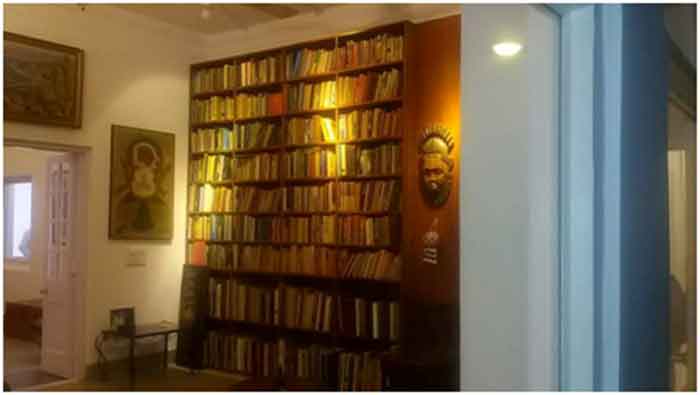
Of the many institutions affected by the Covid pandemic and repeated lockdowns, the case of public libraries closing down is the most saddening.
In Maharashtra, such libraries were a staple part of daily life for students and residents of many towns and cities across the state in the pre-pandemic period. Today they are in dire straits due to a variety of reasons.
Apart from restrictions on movement of people and gathering in closed spaces, much of the distress that public libraries face is due to non-deposit of fees by members hurting their major source of income. Several good libraries also used to receive grants from state institutions but a backlog in payments has put them in a precarious position financially, even leading to closure in some cases.
Sunil Kubal, superintendent of the Mumbai Marathi Museum, explains that for many libraries, the months of April, May and June are important in terms of member registration. But, during this time the lockdown was effective at all places. This was the reason that most of the libraries could not get income from member registration. The situation went from bad to worse leading to the closure of libraries and their study rooms for the last several months.
“Fall in membership income is one of the reasons. Donations to libraries on the occasion of Shradh and Ganeshotsav have also almost stopped. So, when the libraries start, an appeal will be made to the members for donations” says Sunil Kubal.
 According to Datta Kamthe, Chief Executive Officer of Dadar Public Library, they currently do not have money to pay the salaries of their employees. Among other factors, this is because the Mumbai Municipal Corporation has taken over the two auditoriums which were earlier a major source of income for the library.
According to Datta Kamthe, Chief Executive Officer of Dadar Public Library, they currently do not have money to pay the salaries of their employees. Among other factors, this is because the Mumbai Municipal Corporation has taken over the two auditoriums which were earlier a major source of income for the library.
Many libraries in rural and urban areas are facing an existential crisis. For example, the Lokmanya Tilak Vachan Mandir in Chiplun has one and a half thousand members. According to the manager of this library, he has been receiving 20 to 30 rupees every month as fee from new members apart from the fee collected from three and a half hundred lifetime members. A minimum of 40 new members joined here every month. Currently, due to the closure of membership, this library has suffered a loss of one lakh 65 thousand rupees in the last one and a half years’.
In Maharashtra, like in other parts of India public libraries were popularised since the beginning of the twentieth century by municipalities and private philanthropists as part of a wider effort to take literacy to the people. Library Associations also played a crucial role in the growth of public libraries in India.
Several important laws for promoting library-centered education were enacted in the first three decades of the last century and there was a rapid growth in public libraries after Indian independence in 1947. Today, over 18 States in the country have enacted their own laws for the administration of public libraries.
For over 100 years now such libraries have been a very valuable source of news and information for people who could not afford to buy books and journals on their own. Though their popularity has waned in big cities due to the coming of the digital age, with instant access to information, in many small towns they continue to be an important source of information.
Many such libraries were established through people’s participation and years of hard work of the managers. Workers associated with libraries feel that considerable financial assistance can be obtained if a better public relations drive is undertaken amidst the general population.
Regarding this, the working president of Lokmanya Tilak Vachan Mandir, Chiplun however says, “This is a rural area, the number of members cannot be increased here. We have given salary to the employees last month with the donation of Rs.51 thousand given by my wife”.
The Mahsala Public Library in Raigad has suffered damage twice due to several storms that hit the town in recent months. The roof of this library collapsed in the last storm. According to the managers of this library, six to seven thousand books were soaked in the storm this time. The library contains many encyclopaedias of Marathi-English including many important speeches of Babasaheb Ambedkar. About 2.5 lakh rupees were spent on drying books, electrical equipment, bills and repair of ceiling etc.
But, the closure of museums and public halls in the last several months too has taken away an extra source of income some libraries used to have earlier. The Mahsala Public Library for example was earlier earning about 15 thousand rupees per month from the rent received from the hall attached to it. But, due to the lockdown, this earning also stopped.
Sanjay Khambate, President of this library, says, “The donation made by the Raigad District Library Association and readers has somehow made it possible to pay the salaries of the employees and repair the building.”
Shirish Khare has been associated with rural journalism for a long time and has been reporting on the economic, social and health impacts of rural life during the Covid pandemic.
Related posts:
Related posts:
Views: 0
 RSS Feed
RSS Feed

















 September 20th, 2021
September 20th, 2021  Awake Goy
Awake Goy  Posted in
Posted in  Tags:
Tags: 
















